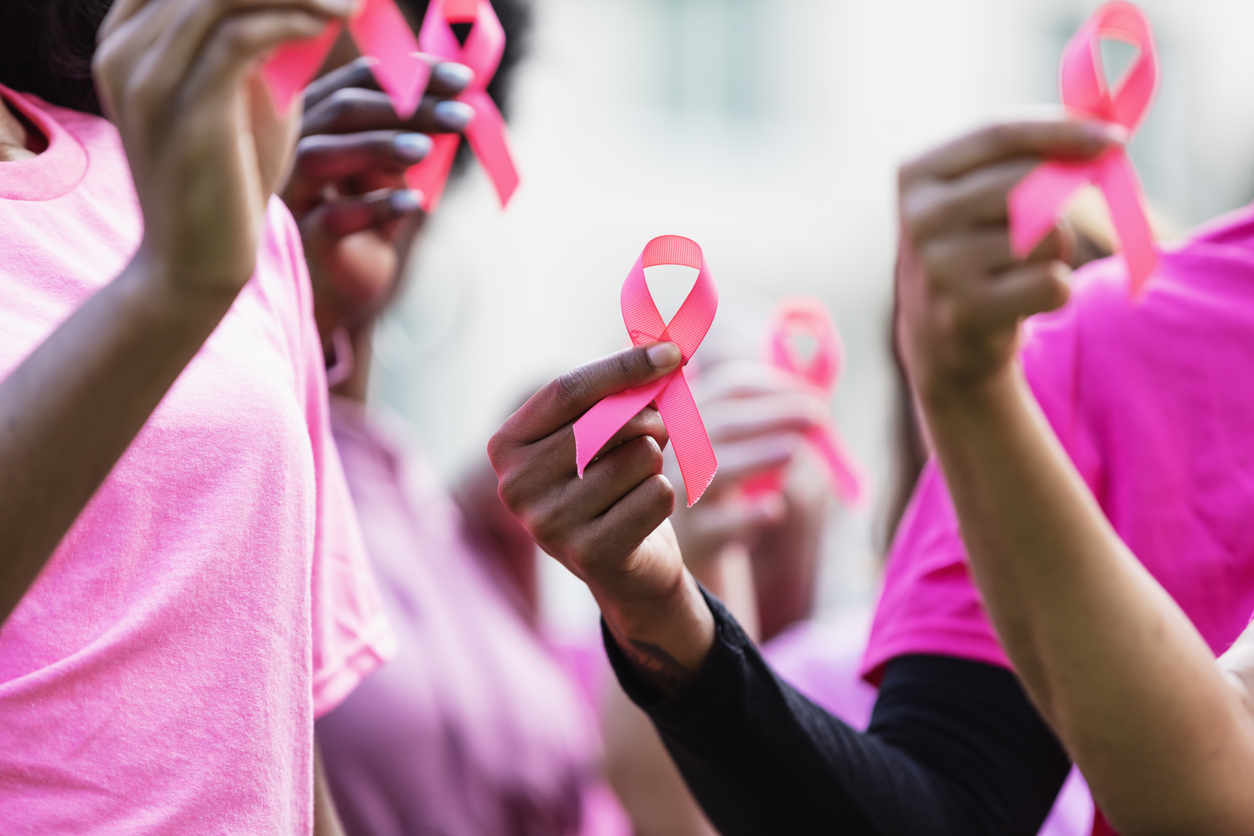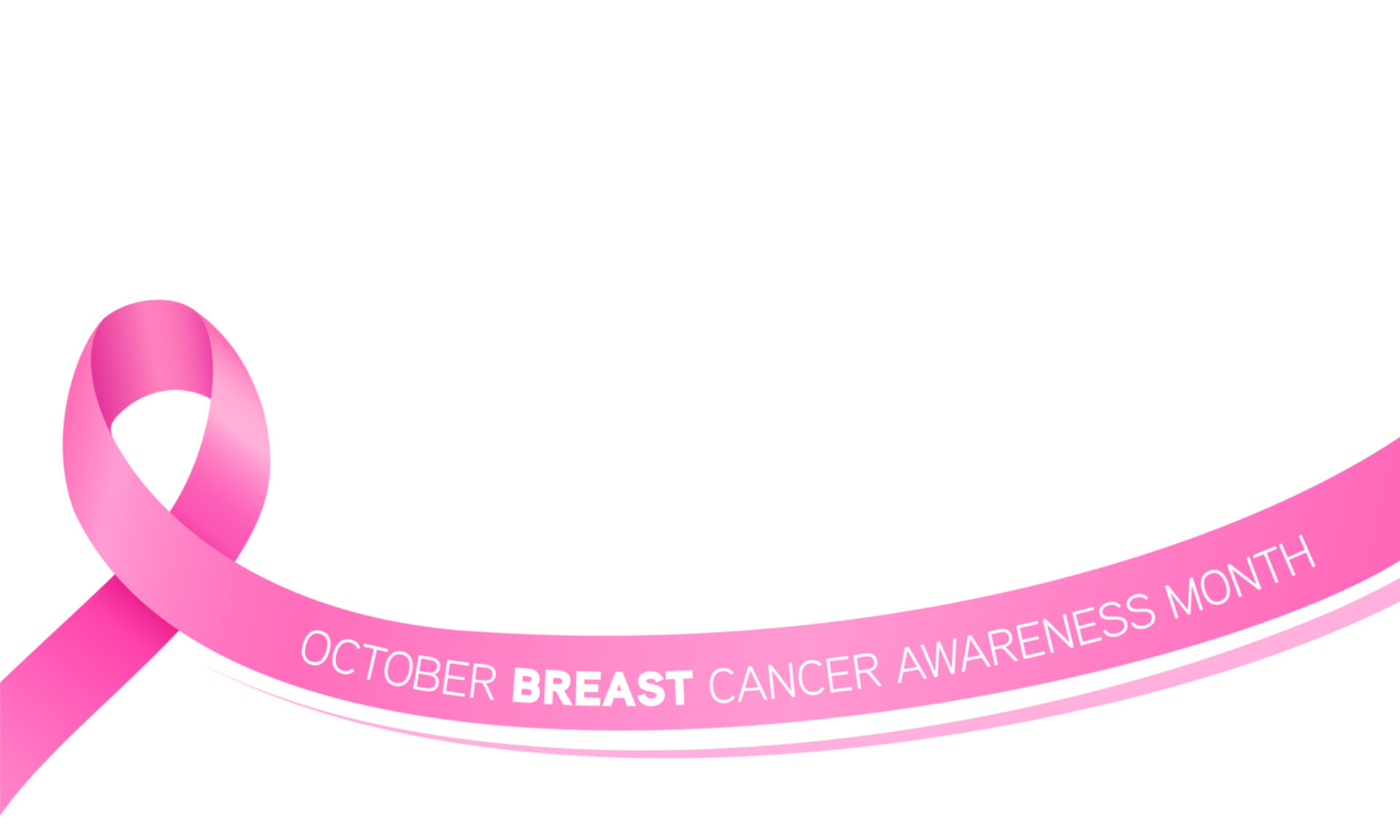October is breast cancer awareness month. This is a time for everyone to come together to raise awareness of breast cancer and its effects. Breast cancer is the most common cancer for women in the UK, with around 56,900 new cases diagnosed every year, which is 30% of all new female cancer diagnoses. 1 in 7 women in the UK will develop breast cancer during their lifetime. In fact, breast cancer is the most common cancer in the UK, accounting for 15% of all new cancer cases, according to research from Cancer Research UK.
Anyone can develop breast cancer, although breast cancer is less common in men; they can still get it. With these kinds of figures in mind, it is important to ensure people are aware of the signs and symptoms of breast cancer, so they can spot them early on. The earlier you are diagnosed, the higher the chance of successful treatment.
Symptoms of breast cancer in women
Breast cancer is cancer that develops in the breast. It most commonly starts in the cells that line the milk ducts of the breast. There is a range of different symptoms associated with breast cancer, but some of the main symptoms to look out for include:
- A lump or swelling in the breast, chest, or armpit
- A change to the skin of your breast, such as puckering, dimpling, or redness
- Nipple discharge (for women who aren’t pregnant or breastfeeding)
- A change in the shape or size of 1 or both breasts
- A change in the shape or look of your nipple, such as it inverting or developing a rash on it
- Pain in your breast or armpit that does not go away
These symptoms could be a sign of another medical condition, and aren’t necessarily breast cancer, but if you have any unusual symptoms, you must get them checked by your GP. Early detection saves lives. Visit your GP as soon as you notice anything unusual for you.

It is important to check your breasts regularly so you know what is normal for you. This makes it easier to notice any changes that could be a sign of breast cancer. It is recommended that you check your breasts once a month.
How to check your breasts
The NHS suggests that you check your breasts and chest thoroughly, following these steps:
- Look at your breasts and chest in a mirror and look for any changes. Start with your arms by your sides, and then raise them. Look front on and from the side.
- Feel around each breast and side of your chest in a circular motion, all the way up to your collarbone and under each armpit, too. Use a mixture of both light and firm pressure, but don’t push so hard that it hurts.
- Feel around and over each nipple, too.
You may find it easier to check your breasts while lying down or when in the shower; do whatever feels most comfortable for you.

Natalie’s breast cancer journey with the Clatterbridge Private Clinic
Natalie has been with the Clatterbridge Private Clinic since November 2023, receiving treatment for stage four breast cancer.
She initially came to the clinic for a port insertion and said she felt it was time to switch her care to the private clinic. She spoke with Dr Raj Sripadam that same day, and 48 hours later, she met with him, then started her treatment here at the private clinic. Initially, she had weekly chemotherapy sessions before moving to three-weekly treatment.
When describing her journey with the Clatterbridge Private Clinic, Natalie said:
“It was amazing. Not to say that all our cancer centres across Clatterbridge aren’t amazing, because they are, but it was a different feel within the Clatterbridge Private Clinic, because you have one-on-one care, you have extra personalisation, and tailored treatment options.”
“Everyone is so friendly and warm, they’ve become friends to me more than just a nurse or a consultant because they have gotten to know me. From November to June, I was having weekly chemotherapy sessions, so I was in here sometimes twice a week, so it just feels lovely. It feels like home, actually. I’m at ease.”
One of the driving factors Natalie decided to come to the Clatterbridge Private Clinic was because of our ability to offer patients access to groundbreaking new treatments that are not always available through the NHS.
Last year, Natalie was the first patient at Clatterbridge to go on Elacestrant (Korserdu), a revolutionary new medication for those with ER-positive, HER2-negative, advanced breast cancer with an ESR1 mutation. This and Enhertu, another targeted therapy medicine used to treat HER2-low breast cancer, are not available on the NHS, but are available through the private clinic.
Despite going through the process several times with the NHS, they keep rejecting the use of Enhertu, likely due to cost. These treatments can be life-changing for patients like Natalie, though, so having access to them is a huge benefit.
Natalie said, “This was one of the driving factors for me transferring to the private clinic because I wanted to have access to Enhertu. Although I did have other options on the NHS, I wanted access to other, new, groundbreaking treatments that were out there, and Elacestrant (Korserdu) and Enhertu were them for me.”
Natalie describes her experience at the Clatterbridge Private Clinic as amazing, saying she would recommend us to anybody she speaks to. “It’s so nice and reassuring to know that I’m being really, really well cared for.”
“Thanks to the clinic for throwing me an extra lifeline and making me realise there is still life after a stage 4 diagnosis. I feel I am living proof of that.”
“Thank you so much for that, for everything. For all of the support you have given me, from chasing up the drugs when they weren’t actually yet on site, to the sandwiches and cups of tea, and coffee. It has been amazing, and I would recommend the Clatterbridge Private Clinic to anybody I speak to. ”

Breast cancer care at the Clatterbridge Private Clinic
Clatterbridge Private Clinic has a team of experienced breast cancer consultants who specialise in the treatment of all kinds of breast cancer. Our multi-disciplinary team offers tailored treatment plans, best suited to you and your specific needs. As we’ve mentioned in this article, we have access to groundbreaking treatments that aren’t routinely available on the NHS, and our patients benefit from these life-changing treatments.
Everything we do here at the clinic is designed to make your journey with us as relaxing and hassle-free as possible. From one-to-one care in a non-clinical environment to our chauffeur service, and food and a chat while you receive your treatment, we do anything we can to make this experience an enjoyable one. Our private patient liaison team are also on-hand to help organise payments with your insurer, make travel arrangements, and answer any questions you have.
To find out more about breast cancer care at the Clatterbridge Private Clinic, get in touch with our team today. Call us on 0151 556 5470 or email janine.wilkinson@nhs.net.
